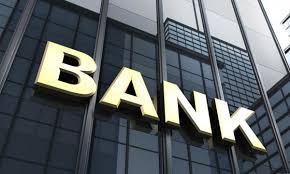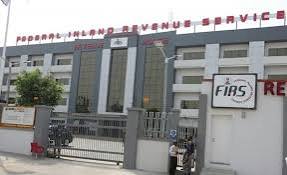The Nigerian Exchange Limited (NGX) is gaining attention as banks prepare for possible capital raise in the market amid the latest recapitalisation exercise by the Central Bank of Nigeria (CBN).
Stakeholders are concerned about the Exchange’s competence and preparedness to handle the possible influx of banks in a bid to meet up with CBN’s recapitalisation directive, The Nation reports.
Banks’ endorsement of the apex financial regulator’s directive came as experts and other stakeholders underlined the significance of the initiative, with most of them expressing optimism that the injection of new capital would support economic growth.
As established by experts, the leading integrated market infrastructure in Africa servicing the continent’s largest economy NGX, has made moves to reassert its preparedness to ensuring the success of financial sector with respect to the objective of CBN’s recapitalisation programme which is to strengthen the Nigerian banking system especially against the background of prevailing macroeconomic challenges.
The Chartered Institute of Bankers of Nigeria (CIBN) and the Nigerian Exchange (NGX) recently formed a strategic collaboration to that effect.
The partnership between the two institutions, according to CIBN President Dr. Ken Opara, is intended to increase capacity and get the banks ready for capital raising.
He affirmed that the NGX and CIBN are working together to implement a number of initiatives that will aid in the recapitalization of the banking industry.
As noted by the Head of Investment and Research, Meristem Securities Limited, Praise Ihensekhien, the recent recapitalisation policy by the top financial regulator could result in a shift of preference among shareholders and investors towards bank stocks, due to an increased flow of liquidity into the banking sector.
Speaking about the recent bank recapitalisation directives issued by the CBN, she emphasised that these measures will require banks to increase their capital, which will boost their attractiveness to stock market investors and shareholders.
She acknowledged that the government’s plan to recapitalise banks will make the industry more appealing to investors, particularly for those banks that currently enjoy high return rates on investment and excess liquidity.
“Shareholders might start to favour bank stocks over other companies. I mean this is something that is already playing out. For example, we have more liquidity in the banking stock than any other stocks,” Ihensekhien stated.
According to the Senate Committee Chairman on Capital Market and Institutions, Senator Osita Izunaso, banks are expected to approach the stock market for additional funds with the introduction of new minimum capital requirements.
While he commended the CBN’s initiative to implement these requirements, he explained that the measure was critical given the depreciation of the naira, which significantly affected the capital base of banks in recent years.
He projected that banks, many of which are listed on the Nigerian Exchange, will employ the stock market to raise the required capital through rights issues or subscription offers. It is anticipated that this action will enhance the financial system and have a positive impact on the capital market.
Given the need to address these demands, Izunaso accentuated the significance of adding new capital as opposed to depending exclusively on income reserves. With positive implications for the overall economy, he continued, this strategy has the potential to strengthen the capital market, increase the capitalisation of the equity market, and perhaps serve as a beacon for foreign direct investment (FDI).
“In view of the strong link between the money and capital markets in Nigeria with most banks quoted on the Nigerian Exchange, I have no doubt that the successful implementation of this exercise will have salutary impact on the capital market.”
“Against the backdrop of the requirement to use only paid-up share capital and share premium for recapitalisation purposes, it is expected that most of the banks will approach the Stock market to raise additional funds either through an offer for subscription or rights issue.
“This has the potential to deepen the market, increase equities market capitalization as well as serve as a veritable source of Foreign Direct Investment with positive multiplier effects on the economy,” the statement read in parts.
Similarly, the Special Adviser on Capital Market to Osita Izunaso, the Chairman of the Senate Committee on Capital Market, Uche Uwaleke, described the idea of the Central Bank of Nigeria on bank recapitalisation as a welcome development.
The Professor of Capital Markets expressed optimism that commercial bank recapitalisation would likely rejuvenate the stock market.
He explained that capital was needed to finance big-ticket projects, especially as the government was targeting a $1trn economy in a few years.
A financial analyst, Ahmed Idris emphasised the market’s preparedness to play the pivotal role in assisting quoted banks to raise the expected capital.
Idris said the NGX has already prepared itself for the big task.
He said: “Looking at the size of the NGX and also looking at the giant strides it has recorded in the last couple of years, you will see that the market is ready. The management has instituted several corporate governance instruments that have helped the market attain the current height it is now.
“The investing public has no reason to doubt the ability of the market. They should be rest assured that NGX will be helpful.”
Some top financial institutions mull capital raise
Access Holdings Plc in a notice of the Group’s second Annual General Meeting scheduled to hold on April 19, 2024 which was published on the Nigerian Exchange portal on March 27, 2024, revealed plans to start a capital raising programme of up to $1.5 billion through the NGX, indicating that it has chosen to capitalise on the market.
Through the sale of shares or the issuance of bonds, the initiative hopes to raise $1.5 billion. Additionally, the corporation intends to use a rights issue to obtain N365 billion from current shareholders.
The financial holding company in a statement said: “The programme aims to enhance the Group’s financial strength through the issuance of various financial instruments such as ordinary shares, preference shares, Alternative Tier 1 capital, convertible and/or non-convertible debt, bonds, or other capital and/or funding instruments.
“The programme may be executed through a variety of methods including public offerings, private placements, rights issues, book building processes, or a combination thereof.
“The specifics regarding the tranches, series, proportions, dates, pricing, tenor, and other terms and conditions that may be associated, will be determined by the Board of Directors, contingent upon securing the necessary regulatory approvals.”
With the programme, The Holdings declared it intends to raise up to N365 billion through the rights issue of common shares. It added that the money obtained would be used to support the company’s ongoing working capital needs, as well as organic growth funding for its banking and non-banking subsidiaries.
Also, according to available reports, Guaranty Trust Holding Company PLC, (GTCO PLC) is exploring a capital raise of up to N525 billion via a “non-dilutive” approach.
The bank’s senior executives according to a source have identified an urgent need to raise capital in line with the directive from the apex bank.
The report indicated that the bank is considering making a public offer to raise between N450 billion and N525 billion while anticipating the offer’s proceeds would be used to strengthen the bank’s working and share capitals
Though the development is still being discussed and needs regulatory permission before a date can be set, the source does, however, mention that an announcement is probable any time soon.
Correspondingly, Zenith Bank recently disclosed plans to raise about N229.26 billion in order to achieve the new capital requirement by 2026, given CBN’s recognition of solely share capital and share premium as part of banks’ capital base.
The lender declared that the banking group, which has already begun the procedure of conversion to a holding company, will complete the process in 2024.
This it announced in a statement that accompanied its annual report for 2023 emphasising that the move is “anticipated to position it advantageously for exploring emerging opportunities in the fintech space while bolstering its digital and retail banking initiatives.
“Furthermore, the group is undertaking urgent necessary actions to meet the new minimum NGN500bn equity capital requirement to maintain its international authorisation within the timeframe stipulated by the Central Bank of Nigeria. This will strengthen its presence in key markets to continue positioning for sustainable growth and value addition for stakeholders.”
Banking sector continues bullish trend after impressive performance in 2023
In 2023, the NGX Banking Index recorded a growth of 114.9 percent, making the index the second-best performing index on the Exchange after the oil and gas index.
Throughout the year, banks emerged as some of the highest profit-generating corporations in Nigeria. This impressive growth was fuelled by a significant increase in interest income and gains realised from the devaluation of the Naira in Q2 2023. This growth was also evident in their market performance.
Last month, the banking sector was the standout performer as its benchmark index gained 21.2 percent to close at 1,029.63 points. The bullish performance of the sector is reflective of foreign investors’ buying interest in the banks.
Nigerian records stellar performance in 2023, leads global markets with N16.30tr gain in Q1 2024
Nigerian Exchange Group Plc on Monday, March 4, announced its full-year audited financial statements for 2023, which ended December 31, with a Profit After Tax (PAT) of N5.2 billion and a declaration of a final dividend of N1.5 billion.
In a statement by its Head of marketing and Corporate Communications, Clifford Akpolo, the Group experienced a surge in gross earnings, rising by 57.4 percent to N11.8 billion in FY 2023 from N7.5 billion in FY 2022.
This growth, he explained, was attributed to performances in core revenue and other income segments.
In light of the economic changes implemented by the President Bola Tinubu administration, the Nigerian stock market provided investors with the second best return in Africa in the first quarter of 2024, with a year-to-date (YtD) gain of 39.84 percent.
Based on available data, the Nigerian stock market outperformed other exchanges throughout the examined time, with the exception of the Zimbabwe Stock Exchange (ZSE) All Share Index, which experienced an YtD rise of about 314.19 percent.
The NGX All-Share Index (NGX ASI) saw growth in spite of a number of macroeconomic obstacles, including growing insecurity, a double-digit inflation rate, and a recent increase in the Monetary Policy Rate (MPR) from 22.75 percent to 24.75 percent.












